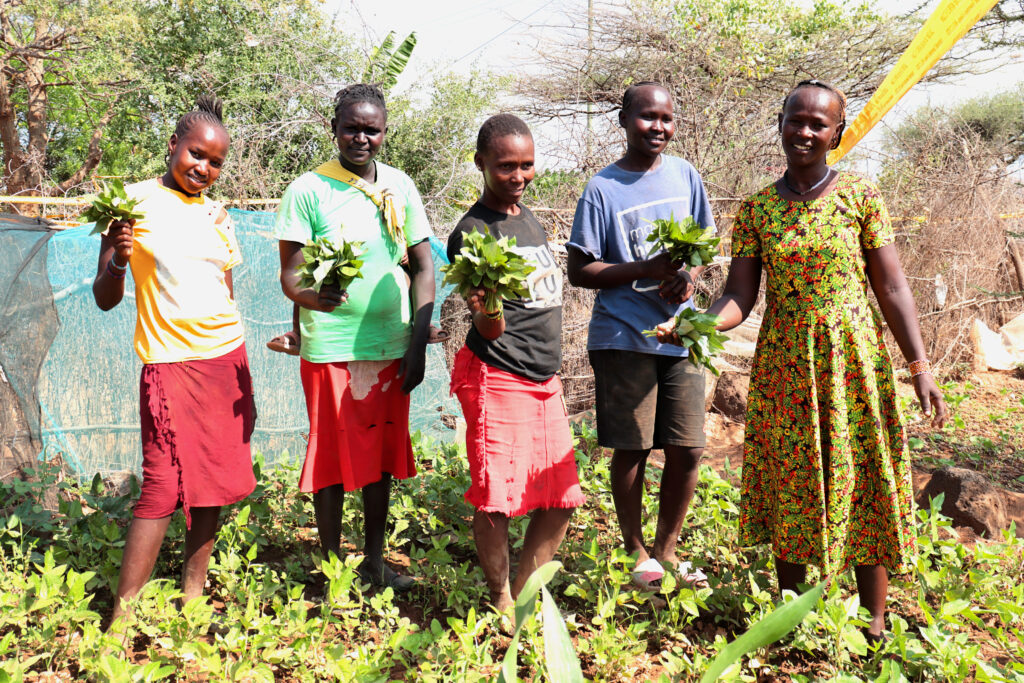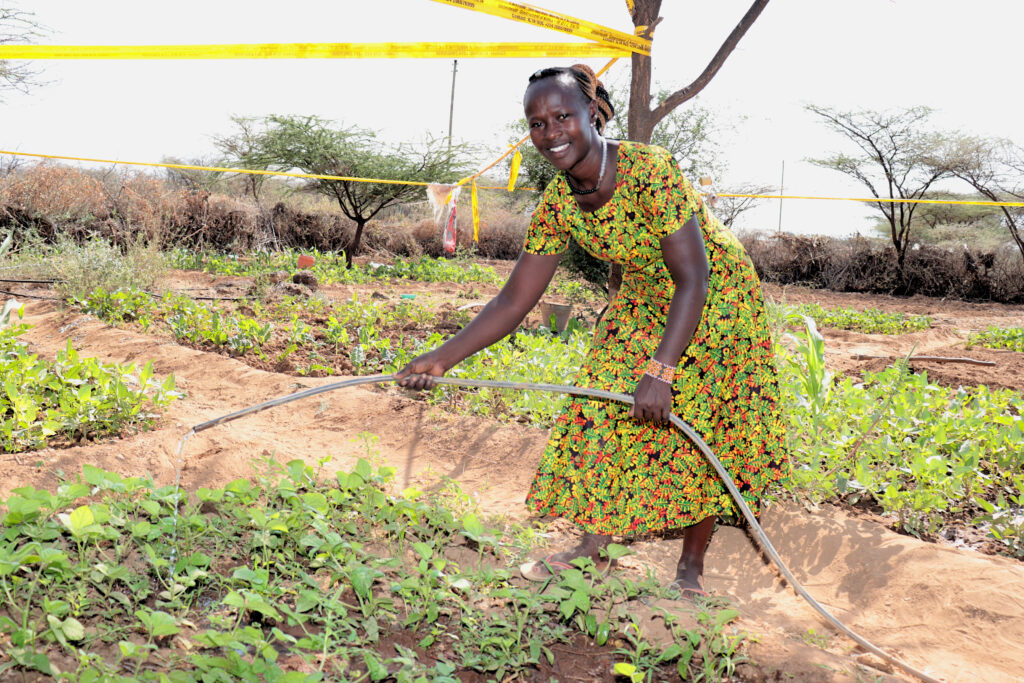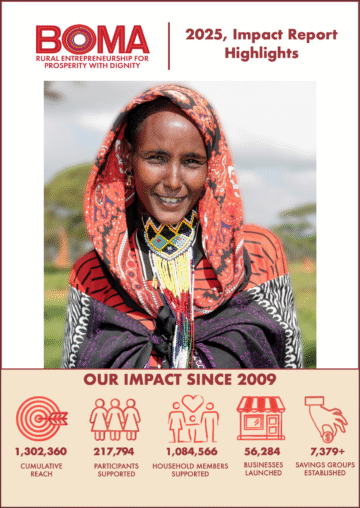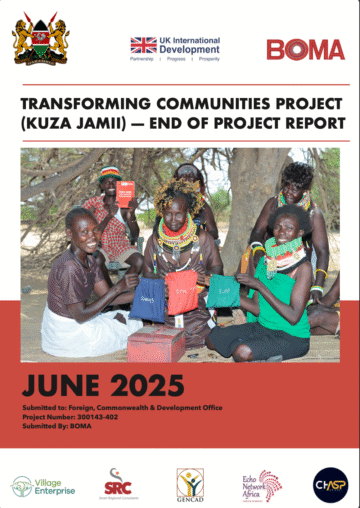
For Mary Nadite and Damaris Lambulambu, members of the Baraka Savings Group in Isiolo, life before Lishe Bora was a daily struggle. They lacked knowledge about balanced diets, had limited food options, and endured days without proper meals. But today, thanks to the training and support from Lishe Bora, their lives and those of their families have transformed dramatically.
“Before Lishe Bora, we did not know these things. We would eat unbalanced diets. We did not know the importance of fruits and vegetables in our meals,” Mary recalls. The program introduced her and her fellow group members to sack gardening, a method that allowed them to grow nutritious food despite challenges like water scarcity and limited land. “We started by planting kale using vertical bag farming because at the time we had a water shortage in this area,” she explains. The group soon realized the yield was insufficient for all members, so they came together to expand the initiative. “We contributed 50 shillings each for all our group members to buy seeds.”
Damaris echoes this transformation, sharing how Lishe Bora reshaped their understanding of nutrition.
“We would just buy what we could afford in town and not care about the mode of cooking. We were taught the importance of spinach, fruits like watermelon and avocado, and having three meals a day when pregnant.”
She highlights how their mentor introduced them to sack gardening to maximize their food production while conserving water. “Our biggest challenge was water and chicken eating our kale. Our mentor Rose later introduced us to sack farming and showed us how to plant and cultivate kale without consuming a lot of water.”
Beyond nutrition, Lishe Bora empowered the group with financial and agricultural knowledge, enabling them to establish a sustainable farming system. The members take turns tending to their crops, ensuring that responsibilities are shared equally.
“Every day, we have two people as per our duty roster who come and water the kale and the various plants in the compound,” Mary shares. The group has expanded its farming activities beyond kale, now growing maize, beans, bananas, mangoes, watermelon, guavas, and even sugarcane. The impact of these changes is profound. “Before Lishe Bora came, we were always in the hospital because we were always sick. We consumed dirty water but after being trained, life has improved,” Mary says.
The members now have the means to provide nutritious meals for their families, leading to noticeable health improvements.
“In the past, our children used to have diarrhea, and they barely had enough to eat. But now, we feed them well, and their health has significantly improved. We no longer go to the hospital to spend money.”

Damaris also reflects on how far they have come. “There were times when we would even pick up banana peels from the road and eat them because of hunger. It was very hard. It is just by the grace of God that we never got sick.” Now, she proudly states that their families eat multiple times a day and enjoy a variety of fruits and vegetables. “We wake up, and we can make breakfast, lunch, have fruits at 4:00 PM, and then have dinner. We eat even up to four times a day.”
Looking ahead, the group has ambitious plans.
“Our future plans as a group, God willing, is to plant more food that can help feed the nearby community. We want to support especially the elderly women who are not able to fend for themselves,” Damaris shares. They also plan to open a grocery store to sell their produce, further boosting their income and sustainability.
Grateful for the knowledge and skills gained, both Mary and Damaris acknowledge the impact of Lishe Bora in their lives.
“I am very grateful to BOMA for all the training and the effort that they have put in to ensure that our lives have improved,” Mary says.
For the Baraka Savings Group, what was once a struggle for survival has become a journey toward self-reliance, good health, and a brighter future. Thanks to Lishe Bora, they are feeding their families and transforming their community.











